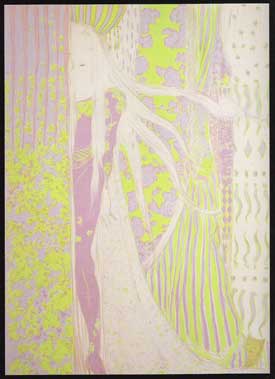
Reviewing and playing a year’s worth of RPG releases in various styles from numerous companies has left me feeling that the genre is a tired dog looking for a place to die – or at least I wish this was the case. Aside from a few titles that sought deviations in control and narrative development, there were and continue to be plenty that cram “me too” titles onto consoles, believing that narrative aspirations and a few modest features can sell to a sedated audience.
At best we get something immediately rooting into safer choices to furnish a series, and even if this provides a few pleasures to be found along the way, we’re living on the long end of a beast’s tail that took the fullest shape on the original PlayStation.
This might begin sounding like the typical “they don’t make them like they used to” ploy. I assure you that can’t be the case, because the problem is that they do make them like they used to quite a bit, with far less success for the trouble.

Squaresoft gets the bulk of praise and retrospective attention for titles released during that renaissance for the genre, when developing ideas about characterization, plot, and interaction met with the evolving graphical capabilities of consoles and the irresistible drawing power of those early CG filmic sequences. Fair enough given the ideas and innovations Squaresoft’s games brought to the console at the time. But Atlus was no slouch during this period either, a time that offered space for the Persona series to take root, and allowed a game like Kartia to emerge.
Incidentally some of the sweeter icing to Kartia is the work of character designer and Final Fantasy institution Yoshitaka Amano, whose skill and talent shines brighter via a game that uses his character portraits for in-game text conversations between characters, complete with several differing depictions to convey changing emotions, stances, and reactions.

Even with the choice to play as either of two characters with separate but intertwining narratives, Kartia is a linear game. The worth of the remembrance is in the idea of Kartia within the game, which are cards that can bring physical objects and creatures into existence based on the text written onto them.
This allows for strategy sessions where players are given the ability to create phantoms to do their fighting for them, and weapons to aid their own encounters. Phantoms come in different flavors, with varying effects against others – it’s fairly straightforward and yet I still had to write it down on a posted note because I’m getting a little older everyday.
That’s all well and good, and keeps a linear game interesting as you gain new texts and materials for evolving creations. But what stands out about this idea is the way it flows naturally out of the narrative proper to enhance the strategy with the connection.

Kartia’s world is one where this power leads to severe abuse, with people using Kartia for all their daily needs, creating a society that becomes dependent on this power to solve their existing problems as well as any number of things that they were previously capable of doing themselves. A wasteful and familiar society takes shape fairly quickly, as well as one bent toward using this power to bring about their own undoing – but we’ll save that bit.
The plot reminds me quite a bit of the strands that pull together a good Philip K. Dick story, either the one where a dying race of creatures that can replicate objects is being worked to death, or the one with the machine that performs a similar task to the point of destroying the world – take your pick.
That the narrative has a direct impact on the playing, or that it is directly dependent on the narrative for existence, and also carries a statement that crosses beyond the game world into our own makes the title worthy of more words.
With the threat of over-generalization ever present, these ideas and considerations seem increasingly lost on titles where abilities and plot could be freely exchanged without creating enough of a disturbance to cause any notice, leaving the bulk of new releases blending into a stew that is becoming increasingly irrelevant to my gaming habits.